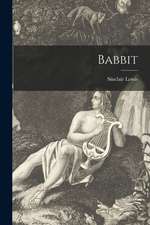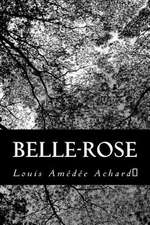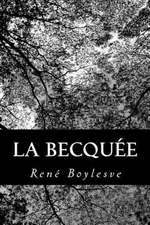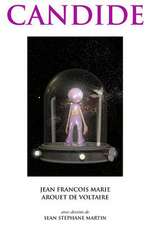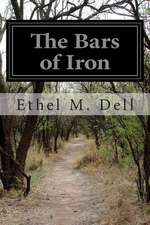THE Job: The Struggles of an Unconventional Woman in a Man's World
Autor Sinclair Lewisen Limba Engleză Paperback – 14 apr 2019
Foundations of Feminist Fiction. The early 1900s saw a quiet revolution in literature dominated by male adventure heroes. Both men and women moved beyond the norms of the male gaze to write from a different gender perspective, sometimes with female protagonists, but also expressing the universal freedom to write on any subject whatsoever.
| Toate formatele și edițiile | Preț | Express |
|---|---|---|
| Paperback (5) | 48.68 lei 3-5 săpt. | |
| CREATESPACE – | 48.68 lei 3-5 săpt. | |
| e-artnow – 14 apr 2019 | 48.87 lei 3-5 săpt. | |
| CREATESPACE – | 53.40 lei 3-5 săpt. | |
| Flame Tree Publishing – 18 ian 2022 | 54.34 lei 3-5 săpt. | +28.46 lei 4-10 zile |
| BISON BOOKS – 31 mar 1994 | 111.55 lei 3-5 săpt. | |
| Hardback (1) | 122.09 lei 3-5 săpt. | |
| Mint Editions – 23 feb 2021 | 122.09 lei 3-5 săpt. |
Preț: 48.87 lei
Nou
Puncte Express: 73
Preț estimativ în valută:
9.35€ • 10.16$ • 7.86£
9.35€ • 10.16$ • 7.86£
Carte disponibilă
Livrare economică 01-15 aprilie
Preluare comenzi: 021 569.72.76
Specificații
ISBN-13: 9788026892427
ISBN-10: 8026892429
Pagini: 156
Dimensiuni: 148 x 223 x 9 mm
Greutate: 0.22 kg
Editura: e-artnow
ISBN-10: 8026892429
Pagini: 156
Dimensiuni: 148 x 223 x 9 mm
Greutate: 0.22 kg
Editura: e-artnow
Notă biografică
Harry Sinclair Lewis (1885–1951) was an enormously successful author both commercially and critically, but despite being the first writer from the US to win the Nobel Prize in Literature in 1930, he has been criminally underrated – until recently. Born in Minnesota, he graduated from Yale in 1908 and pursued his vocation, writing for newspapers and magazines and publishing potboilers until releasing his first serious novels, including 1917’s The Job. His stellar success came with the satirical novels Main Street (1920) and Babbitt (1922) and several of his works were adapted for film. His insightful criticism of American capitalism, mores and politics (not least his uncanny 1935 dystopia It Can't Happen Here), and his representations of modern working women mark him out as a truly far-sighted novelist of our time.
James M. Hutchisson (Introduction), Emeritus Professor of English at The Citadel in Charleston, South Carolina, is a specialist in nineteenth- and twentieth-century American literature. He is the author of The Rise of Sinclair Lewis, editor of Sinclair Lewis: New Essays in Criticism, and Past President of The Sinclair Lewis Society. His most recent book is Ernest Hemingway: A New Life.
Ruth Robbins (Series Foreword) is Professor of English Literature and Director of Research for Cultural Studies at Leeds Beckett University. She has published widely on both feminism and the literature of the period 1870–1940. Her books include Literary Feminisms, Pater to Forster, 1873–1924, Subjectivity, Oscar Wilde and The British Short Story. She is currently working on Virginia Woolf: A Writer’s Life.
James M. Hutchisson (Introduction), Emeritus Professor of English at The Citadel in Charleston, South Carolina, is a specialist in nineteenth- and twentieth-century American literature. He is the author of The Rise of Sinclair Lewis, editor of Sinclair Lewis: New Essays in Criticism, and Past President of The Sinclair Lewis Society. His most recent book is Ernest Hemingway: A New Life.
Ruth Robbins (Series Foreword) is Professor of English Literature and Director of Research for Cultural Studies at Leeds Beckett University. She has published widely on both feminism and the literature of the period 1870–1940. Her books include Literary Feminisms, Pater to Forster, 1873–1924, Subjectivity, Oscar Wilde and The British Short Story. She is currently working on Virginia Woolf: A Writer’s Life.
Descriere
Descriere de la o altă ediție sau format:
Written in the early years of the 1900s Lewis' central character, highly unusual for the era, is a woman, Una Golden, who gains work in an exclusively male world of commercial real estate. Golden struggles for the recognition of her male peers while balancing romantic and work life.
Written in the early years of the 1900s Lewis' central character, highly unusual for the era, is a woman, Una Golden, who gains work in an exclusively male world of commercial real estate. Golden struggles for the recognition of her male peers while balancing romantic and work life.
Recenzii
Sinclair Lewis's "first distinguished work of fiction."—James D. Hart, Oxford Companion to American Literature
"Sinclair Lewis has one attribute of genius—sympathetic insight. . . . He has not only made a woman who works for her living the central figure of his story, he has insisted on doing so without sentimentality or melodrama or false pathos."—New Republic
"Sane, generous, well-balanced, above all real, [the novel] interprets by presenting this world as it is."—New York Times
"Lewis was consciously exploring [in The Job] the choices and pressures that women felt personally and socially during the first third of the twentieth century. And, yes, this fictional exploration still has relevance emotionally and politically because the choices for and pressures on women have not been significantly modified."—Nan Bauer Maglin, Massachusetts Review

